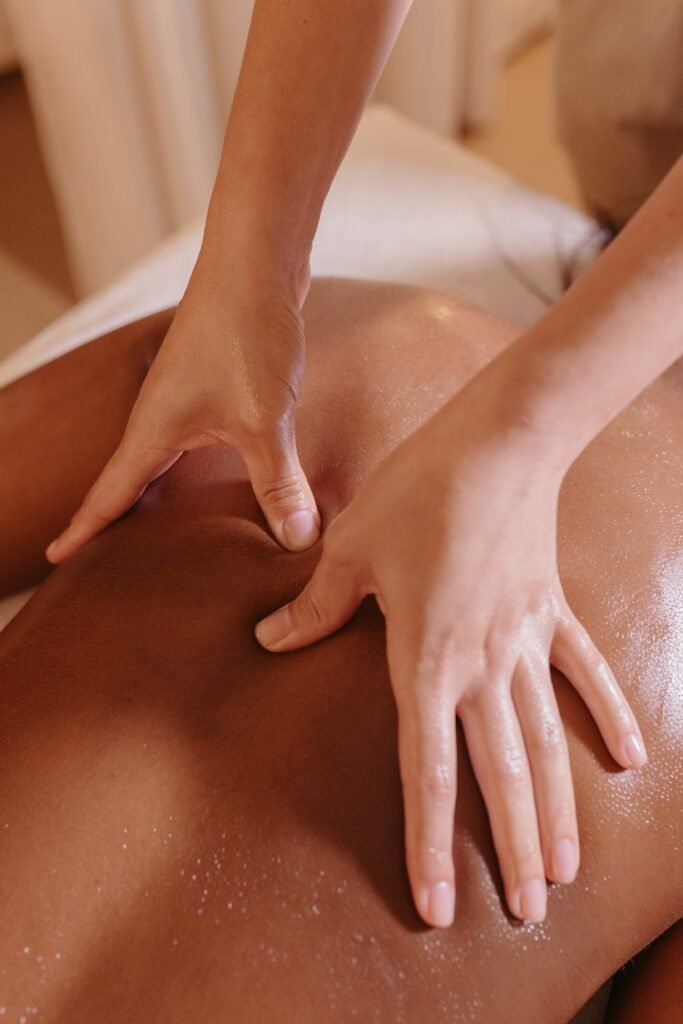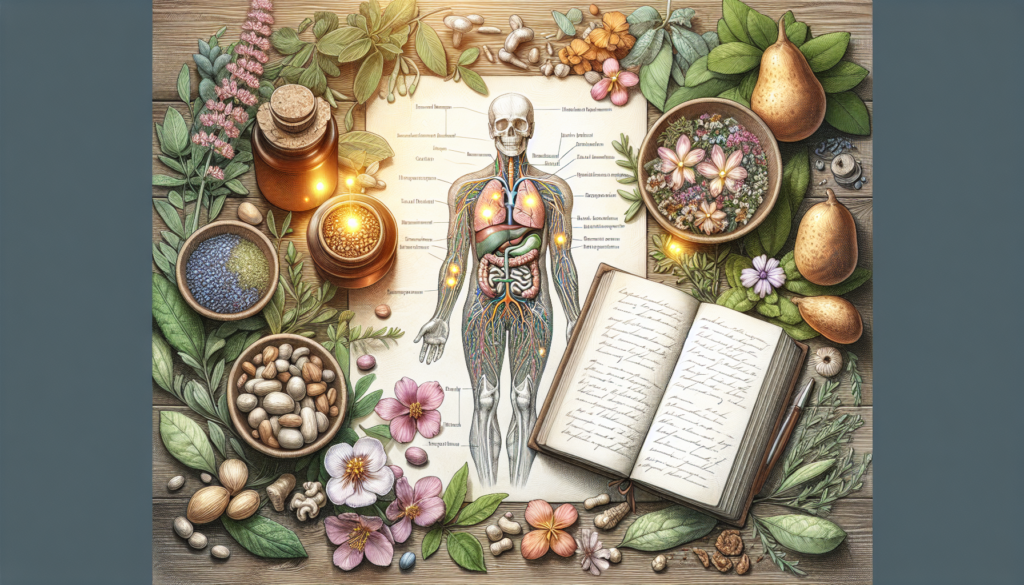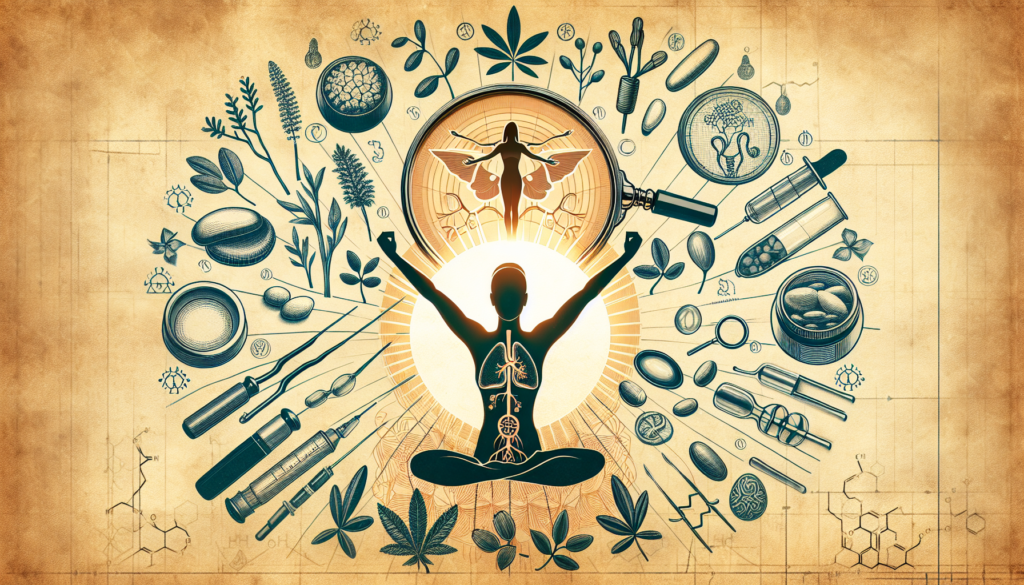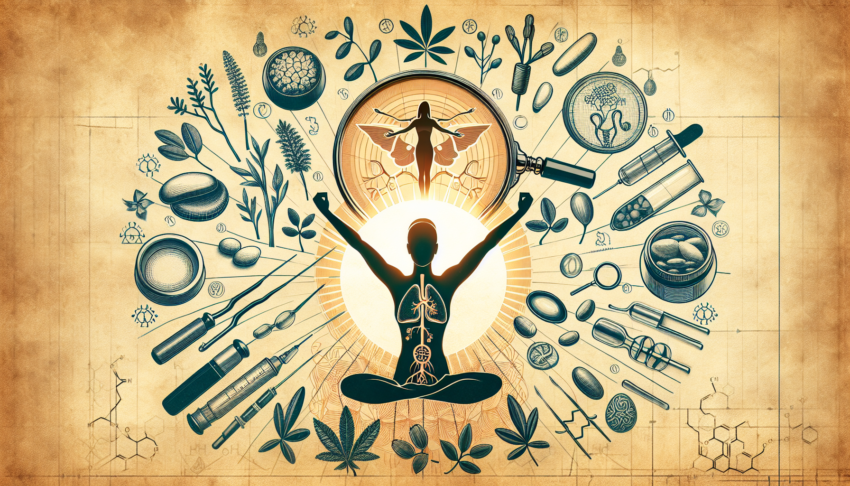Have you ever wondered if alternative medicine can help in addressing hormonal imbalances? With the growing popularity of alternative healing methods, many people are looking for natural and holistic approaches to combat hormonal issues. In this article, we will explore the potential of alternative medicine in addressing hormonal imbalances and how it can provide a safe and effective solution for those seeking a more balanced and harmonious well-being. So, if you’re curious about the possibilities and benefits of alternative medicine, read on to discover the potential it holds in restoring hormonal balance.

What are hormonal imbalances?
Hormonal imbalances occur when the body’s endocrine system is not functioning optimally, leading to an imbalance in the production or regulation of hormones. Hormones are chemical messengers that play a crucial role in various bodily functions, including growth, metabolism, reproduction, and mood regulation. When the levels of hormones are disrupted, it can result in a wide range of symptoms and health complications.
Traditional medical approach to hormonal imbalances
The traditional medical approach to treating hormonal imbalances often involves hormone replacement therapy (HRT), prescription medications, or surgical interventions. Hormone replacement therapy aims to supplement or substitute the hormones that are deficient in the body. Prescription medications, on the other hand, target specific hormonal imbalances by regulating hormone production or inhibiting certain bodily processes. In more severe cases or when other treatments have failed, surgical interventions may be considered to remove or alter the affected organs or glands.
Understanding alternative medicine
Alternative medicine encompasses a wide range of practices and treatments that are not typically part of conventional medical care. It is often used as a complementary or alternative approach to address health conditions, including hormonal imbalances. Alternative medicine focuses on the whole person rather than just the symptoms, taking into consideration physical, mental, emotional, and spiritual well-being.
Defining alternative medicine
Alternative medicine refers to medical practices that are outside the realm of conventional or mainstream healthcare. These practices are often based on ancient healing traditions and may include herbal medicine, acupuncture, homeopathy, naturopathy, and energy healing. Alternative medicine aims to promote the body’s natural ability to heal itself and restore balance.
Holistic approach
One of the key principles of alternative medicine is a holistic approach. This means that instead of focusing solely on the symptoms of the hormonal imbalance, alternative medicine practitioners consider the overall health and well-being of a person. They take into account various factors such as lifestyle, diet, stress levels, and emotional state to develop a comprehensive treatment plan.
Types of alternative medicine
There are various types of alternative medicine that can be used to address hormonal imbalances. Herbal medicine utilizes plants and botanical extracts to restore hormonal balance in the body. Acupuncture involves the insertion of thin needles at specific points on the body to stimulate the flow of energy and restore harmony. Homeopathy uses highly diluted substances to trigger the body’s natural healing response. Other practices such as naturopathy, energy healing, and mind-body techniques like yoga and meditation may also be incorporated into the treatment plan.
Common hormonal imbalances
There are several types of hormonal imbalances that are commonly experienced by individuals. Understanding these imbalances can help in finding appropriate treatments within alternative medicine.
Estrogen dominance
Estrogen dominance occurs when there is an excess of estrogen in relation to other hormones, such as progesterone or testosterone. This imbalance can manifest in various ways, including irregular menstrual cycles, mood swings, weight gain, and decreased libido. Alternative medicine approaches such as botanical remedies and dietary modifications can help rebalance estrogen levels.
Polycystic ovary syndrome (PCOS)
PCOS is a hormonal disorder that affects women and is characterized by cysts on the ovaries, irregular menstrual cycles, excessive hair growth, and weight gain. Alternative medicine approaches for PCOS often involve dietary changes, exercise, stress reduction techniques, and herbal remedies to regulate hormone levels and improve symptoms.
Thyroid disorders
Thyroid disorders, such as hypothyroidism or hyperthyroidism, occur when the thyroid gland does not produce adequate or excessive amounts of thyroid hormones. The symptoms can vary widely but often include fatigue, weight changes, mood swings, and hair loss. Alternative medicine approaches focus on improving thyroid function through dietary modifications, herbal remedies, and stress management techniques.
Adrenal fatigue
Adrenal fatigue is a condition characterized by chronic fatigue, difficulty sleeping, and stress-related symptoms. It occurs when the adrenal glands, responsible for producing stress hormones like cortisol, become overworked and unable to function properly. Alternative medicine approaches, such as lifestyle modifications, restorative therapies, and herbal supplements, aim to support adrenal gland function and restore hormonal balance.

The role of alternative medicine in addressing hormonal imbalances
Alternative medicine can play a significant role in addressing hormonal imbalances by promoting natural hormone balance without the use of synthetic hormones or invasive procedures. Here are some of the approaches within alternative medicine that can be used to address hormonal imbalances:
Balancing hormones naturally
Alternative medicine emphasizes the importance of balancing hormones naturally by addressing the underlying causes and promoting overall well-being. This approach involves identifying and addressing lifestyle factors, such as stress, diet, exercise, and sleep, that can influence hormone production and regulation.
Diet and nutrition
The food we consume can have a significant impact on our hormonal balance. Alternative medicine practitioners often recommend dietary modifications that focus on consuming whole foods, reducing processed foods and sugar, and incorporating hormone-balancing nutrients like omega-3 fatty acids, vitamins, and minerals.
Herbal remedies
Herbal remedies have been used for centuries to address hormonal imbalances. Certain herbs and botanical extracts have properties that can support hormone production and regulation. For example, herbs such as black cohosh, dong quai, and chasteberry have been traditionally used to balance hormones in women.
Acupuncture and acupressure
Acupuncture and acupressure are ancient Chinese practices that involve the stimulation of specific points on the body to restore the flow of energy or Qi. These practices have been shown to have a positive impact on hormonal imbalances by promoting relaxation, reducing stress, and regulating hormone production.
Scientific evidence supporting alternative medicine for hormonal imbalances
Alternative medicine is often criticized for its lack of scientific evidence. However, there is a growing body of research supporting the effectiveness of certain alternative medicine practices in addressing hormonal imbalances.
Studies on herbal remedies
Several studies have demonstrated the potential of herbal remedies in restoring hormonal balance. For example, a study published in the Journal of Ethnopharmacology found that chasteberry extract helped regulate menstrual cycles in women with menstrual irregularities. Another study published in the Journal of Alternative and Complementary Medicine showed that black cohosh extract reduced hot flashes and improved quality of life in menopausal women.
Effectiveness of acupuncture
Acupuncture has been extensively studied for its effects on hormonal imbalances. Research has shown that acupuncture can stimulate the release of endorphins, reduce stress hormones like cortisol, and regulate reproductive hormones in women with hormonal imbalances. A meta-analysis published in the Journal of Obstetrics and Gynaecology Canada concluded that acupuncture can be an effective adjunct therapy for women with polycystic ovary syndrome.
Impact of lifestyle changes
Numerous studies have highlighted the positive impact of lifestyle modifications, such as diet, exercise, stress reduction, and sleep, on hormonal imbalances. For example, a study published in the Journal of Clinical Endocrinology and Metabolism found that lifestyle interventions, including diet and exercise, improved insulin resistance and hormonal balance in women with PCOS.

Cautionary notes when considering alternative medicine
While alternative medicine can offer natural and effective approaches to hormonal imbalances, it is essential to approach it with caution and in consultation with a healthcare professional.
Consulting with a healthcare professional
Before starting any alternative medicine treatment, it is crucial to consult with a qualified healthcare professional who understands both conventional and alternative approaches. They can provide guidance, monitor progress, and ensure that the treatment plan is safe and appropriate for individual needs.
Potential risks and side effects
Alternative medicine practices, including herbal remedies and supplements, may carry their own risks and side effects. Some herbs can interact with medications or exacerbate certain health conditions. It is important to be aware of any potential risks and disclose all information to the healthcare professional to minimize potential side effects.
Interactions with other medications
Certain alternative medicine practices or remedies may interact with prescription medications. It is vital to inform healthcare professionals about all medications, including herbal supplements or remedies, being taken to avoid any potential interactions that could compromise one’s health.
Managing stress and hormonal imbalances
Stress is known to contribute to hormonal imbalances, so managing stress is an integral part of addressing hormonal imbalances. Alternative medicine offers various stress-reducing techniques and mind-body practices that can help restore hormonal balance.
Stress-reducing techniques
Alternative approaches such as meditation, deep breathing exercises, yoga, and mindfulness can significantly reduce stress levels and promote hormone balance. These techniques focus on calming the mind and activating the body’s relaxation response, leading to stress reduction and improved hormonal regulation.
Mind-body practices
Mind-body practices like meditation, yoga, and tai chi combine physical movements with mental focus and deep breathing. These practices help reduce stress, improve hormonal balance, and enhance overall well-being. They can also improve sleep quality, which is crucial for hormonal regulation.
Creating a healthy lifestyle
Adopting a healthy lifestyle is essential for managing hormonal imbalances. Alternative medicine emphasizes the importance of regular exercise, maintaining a balanced diet, getting sufficient sleep, and managing stress levels. These lifestyle modifications can have a profound impact on hormonal balance and overall health.

Alternative medicine vs. traditional medicine
While traditional medicine approaches hormonal imbalances with hormone replacement therapy (HRT) and prescription medications, alternative medicine provides a complementary or alternative option.
Comparing approaches
Traditional medicine focuses on symptom management and direct intervention with synthetic hormones or medications. In contrast, alternative medicine aims to address the underlying causes, stimulate the body’s natural healing mechanisms, and restore balance through holistic approaches.
Integration of both methods
There is increasing recognition of the benefits of integrating both traditional and alternative medicine approaches to address hormonal imbalances. This approach, known as integrative medicine, combines the best of both worlds, taking into account the individual’s unique needs and preferences. By combining conventional treatments with alternative medicine practices, individuals can optimize their overall health and well-being.
Conclusion
Hormonal imbalances can significantly impact an individual’s physical and emotional well-being. While traditional medicine offers hormone replacement therapy and prescription medications, alternative medicine provides a holistic and natural approach to address hormonal imbalances. Alternative medicine focuses on holistic well-being, dietary modifications, herbal remedies, acupuncture, and lifestyle changes to restore hormonal balance. While more research is needed to fully understand the effectiveness of alternative medicine, there is scientific evidence supporting certain practices. It is essential to consult with a healthcare professional before embarking on any alternative medicine treatments and to integrate both traditional and alternative medicine approaches for optimal outcomes.



